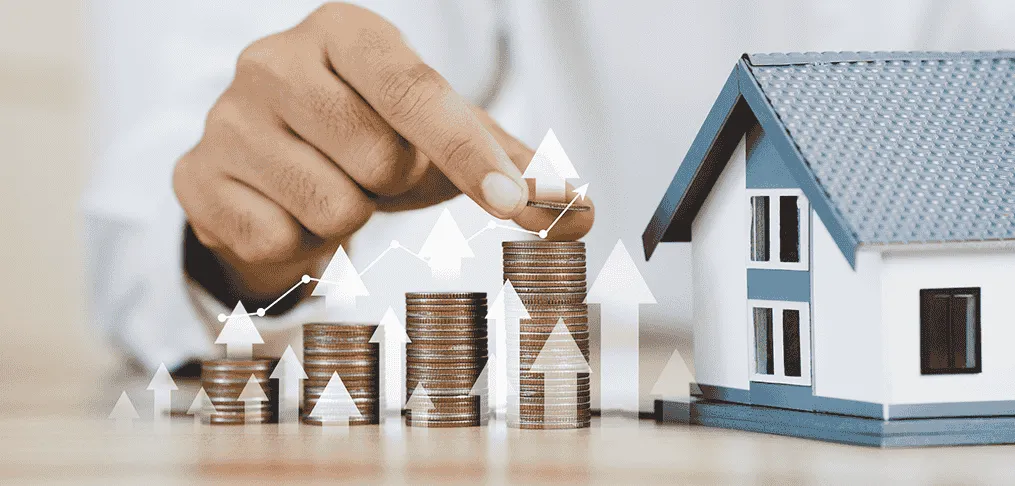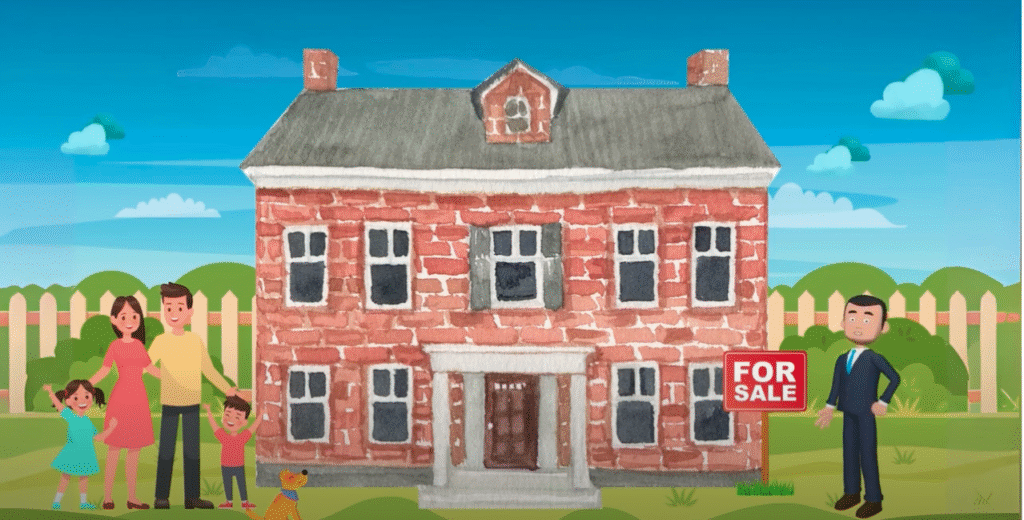- Employment status, whether employed or self-employed
- Total gross income
- Regular expenses such as household bills
- Childcare costs
- Student loan repayments
- Credit history
- Debts
- Future circumstances
How Much Can I Borrow for My Mortgage?
On this page you’ll find our free residential borrowing calculator which helps you work out how much you could borrow on your mortgage. You’ll also discover information on mortgage eligibility and lender criteria.
If you’re looking to borrow money to purchase a property, we strongly advise that you speak to our mortgage advisers to find mortgage deals that match your unique situation.
Fill out this enquiry form and we’ll contact you to book a free call with one of our mortgage experts.
"*" indicates required fields
Mortgage Calculator: How Much Can I Borrow?
This is not a quotation under the Consumer Credit Act. Figures are subject to validation of income, credit checks and a property valuation.
As a guide, you could potentially borrow around:
As long as you've got a 10% deposit, good credit history, and no big debts or expenses, you should be able to borrow up to .
The amount you could potentially borrow…
Calculating the amount you could borrow
How is this calculated?
This calculator works out your maximum borrowing by multiplying your income by 4.5, which is a typical affordability calculation used by lenders.
There are some lenders that go up to 7x your income. Speak to your mortgage adviser if you’d like to know more about these kinds of mortgages.
Next Steps
Speak to our team for a free consultation and more advice on what you can borrow.
Start Your Mortgage Journey
Every mortgage starts with a conversation. Whether you’re buying your first home, remortgaging, or exploring buy-to-let, we’ll guide you through your options and help you understand what’s possible. With expert advice and access to the whole market, you can take your next step with confidence.

1
Use our mortgage borrowing and deposit calculators
Once you have used our mortgage borrowing calculator to estimate your maximum borrowing amount, you can calculate your deposit. The size of your deposit will affect how much you can borrow. With a larger deposit, you’ll reduce your LTV which may mean the lender can offer you a lower interest rate.

2
Check your credit score
Checking your credit score with at least one of the free credit reference agencies will show you where you stand and how lenders may view your application. If you have adverse credit events on your credit file this could limit the deals available to you

3
Get advice from an independent mortgage broker
A mortgage broker like John Charcol can provide you with a more accurate idea of how much you can borrow and the different mortgage options available. We’ll be able to direct you towards the lender with the best deal for your circumstances
What Is a Mortgage?
A mortgage is a type of long term secured loan used to fund the purchase of a property. There are several types of mortgages – including first-time buyer mortgages, home mover mortgages, remortgages, buy-to-let mortgages, commercial mortgages and more.
When you buy your first home, you’ll put down a lump sum towards the property purchase price; this is your deposit. The outstanding cost of the property is paid for with a mortgage. The mortgage will either be an interest-only mortgage or more commonly, a repayment mortgage. With an interest-only mortgage, you only make monthly interest payments and pay off the outstanding loan amount at the end of the mortgage term. With a repayment mortgage, you make monthly interest payments and mortgage repayments. While you’ll own the home, if you don’t keep up with your payments, the lender can take possession of the property.
Mortgages typically have terms ranging from 10 – 30 years. The amount you can borrow is based on several factors – including your income, property value, deposit and credit score. Meanwhile, the interest you pay will depend on the mortgage interest rate, which is a percentage of the total amount you owe.
If this is not the case for you, then read our guide to find out how to calculate your Capital Gains Tax. Please note that our calculator is for property only, and not general investments.
How Much Can You Afford to Borrow for a Mortgage?

How much you can afford to borrow for a mortgage typically depends on your income, expenses, LTV (loan-to-value), credit score and more. The maximum LTV offered by most lenders is 95% which means you’ll be required to provide at least 5% of the property’s purchase price in deposit. There are a few 100% mortgage products on the market, but you’ll have to meet the specific criteria for that product – e.g. family springboard, track record mortgage, etc. When you apply for a mortgage, your affordability is worked out in 2 steps.
Firstly, the lender will typically have a maximum income multiple which will determine the amount you may be able to borrow up to, for example 4.5x your income. You can use our calculator below to work out your potential maximum borrowing.
Secondly, the lender will conduct an affordability check to determine how much they can actually lend to you and what repayments you can afford. This can impact things like your deposit requirements and mortgage term.
The lender will assess your income and outgoings as well as other factors, including your:
It’s worth remembering how much mortgage you can borrow and how much you can afford may differ. Therefore, it’s a good idea to consider whether you can comfortably afford the repayments on a large mortgage. A good rule of thumb is to avoid spending more than 30% of your income on mortgage repayments. Any more than this could leave you without money to do other things, such as home improvements, build up your savings or go on holiday.
Our mortgage borrowing calculator will give you an idea of how much you can borrow on a mortgage based on your income. While our repayment calculator can show you what your monthly payments will be once you have a mortgage deal in mind.
Mortgage Eligibility: How Much Can I Borrow?
If we could all borrow as much as we liked, we’d all live in mansions and penthouses. Sadly that’s not the case, so in order to establish how much you can borrow, your mortgage lender will take the following into consideration.
1
Deposit
Your deposit is the amount you have to put down to secure your property. Normally a deposit of at least 5% – 10% is required to secure a mortgage. However, there are a few providers offering first-time buyer mortgage deals at 100% LTV.
2
How Much You Earn
It stands to reason that lenders will be more willing to let you borrow a greater amount of money if you have more disposable income. If you’re buying with a partner or even a friend, your joint income and expenditure will be taken into consideration.
3
Age
The older you are, the less time you have to pay off your mortgage and this means your monthly repayments will be higher on a repayment mortgage.
4
Being on the Electoral Roll
Your mortgage lender can ascertain some information about you if you are, or have been, registered to vote. Being on the electoral roll is regarded favourably by lenders.
5
Credit Rating
Your ability to borrow money is subject to a good credit rating. Lots of factors can affect your credit rating, such as credit card repayments and timely bill payments so it’s a good idea to keep on top of everything well in advance of applying for a mortgage. If you’re not sure what your credit rating is, you can check using websites such as Experian and Equifax.
6
Spending
If you regularly go on shopping sprees, you’ll want to curb that habit before applying for a mortgage. If a mortgage lender sees that you have high expenditure and high debt they’ll be less willing to let you borrow as much money as you may want.
Frequently Asked Questions
What Percentage of Salary Can You Borrow for a Mortgage?
While the amount you can borrow for a mortgage will vary depending on your circumstances and the lender, you can typically expect to borrow up to 4.5x your annual salary/income.
For example, if you earn £30,000, you may be eligible for a mortgage of £135,000. Some lenders may use a higher or lower income multiple. It’s important to remember that lenders will consider several other factors besides salary when assessing how much you can afford, such as your age, monthly expenses, employment status and deposit size.
How Much Deposit Do You Need for a Mortgage?
When getting a mortgage, you’ll typically need a minimum deposit of 5% to get a mortgage with an LTV of 95%. If you’re able to provide a deposit of around 10%, 15%, or 20%, you’ll have access to better rates and deals which could make your mortgage cheaper in the long term. The cheapest mortgage deals available usually apply to those with a deposit of at least 40%.
There are some no deposit mortgage products available from a few lenders as well another type of product called a Family Springboard mortgage, but to be eligible you’ll have to meet their specific criteria.
What Are Mortgage Interest Rates?
Mortgage interest rates are what lenders charge people for borrowing money. They’re generally expressed as an annual percentage rate or APR. The lender adds the interest rate to the principal amount borrowed, which you generally then pay back over the life of a repayment mortgage with monthly sums.
Interest rates typically vary depending on your credit score, deposit size, mortgage term and market conditions. Fixed rate mortgages have a fixed interest rate for a specific period, usually 2 – 5 years before you go onto your lender’s SVR (standard variable rate) which is often much more expensive. Variable interest rates can fluctuate, and the amount of interest you pay on your mortgage can go up and down. You would typically remortgage or take out a product transfer when your fixed rate comes to an end to avoid paying more interest than you have to. Our mortgage advisers can help you arrange a remortgage or product transfer up to 6 months before the end of your deal.
Taking the stress out of finding the best mortgage rate
Now you know how much you can borrow on a mortgage, why not learn a bit more about the mortgage application process in our video?
Where award-winning mortgage advisers live
We’re a people company. Our diverse range of talented people each bring their own knowledge and experience to the business.
